Every month, we carefully curate a selection of AI startups that demonstrate strong potential through their novel approaches, technological breakthroughs, or unique applications. Our spotlight focuses not just on companies with impressive funding rounds, but on those creating tangible impact across diverse sectors; from healthcare and sustainability to enterprise solutions and creative technologies. In this month’s edition, we turn our attention to a remarkable collection of AI startups that have caught our eye.
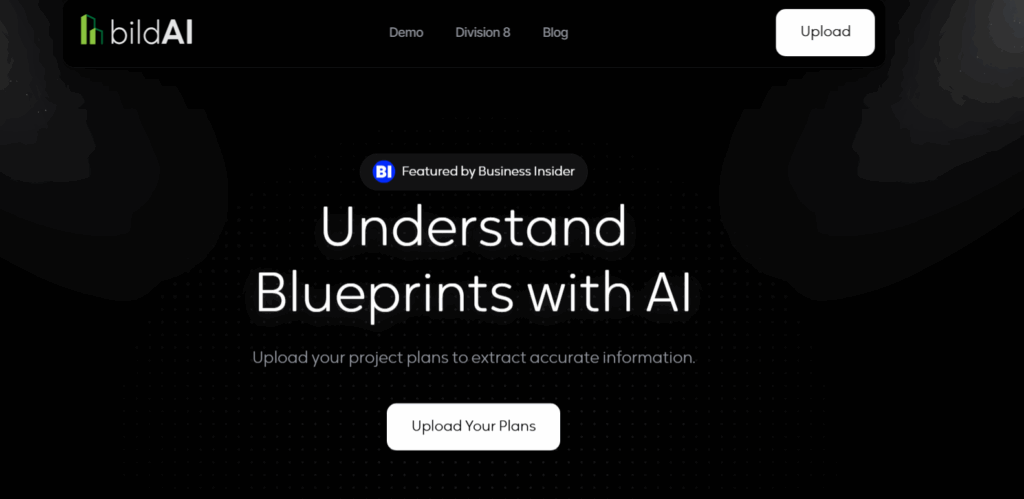
Bild AI, a dynamic new entrant in the AI sector, is rapidly gaining attention for its mission to bring transformative efficiency to the construction industry. Founded in early 2025 by Roop Pal and Puneet Sukhija, the San Francisco-based startup recently secured a $3.1 million seed round led by Khosla Ventures, with backing from notable investors including those associated with PlanGrid, Dropbox, and Airbnb.
Leveraging advanced artificial intelligence and computer vision, Bild AI’s platform automates the otherwise manual and error-prone process of reading construction blueprints to estimate material quantities and costs. Traditionally, this tedious process consumes valuable time and is susceptible to costly human mistakes, factors that slow projects and drive-up expenses. Bild AI’s solution enables builders and suppliers to quickly and accurately generate material takeoffs for items such as flooring, doors, and framing, helping them bid on more projects and eliminate estimation bottlenecks. Early clients, particularly in multifamily housing supply, have used the platform to streamline their operations and reduce overhead.
This bold vision positions Bild AI as a standout startup to watch and a catalyst for much-needed innovation in construction technology.
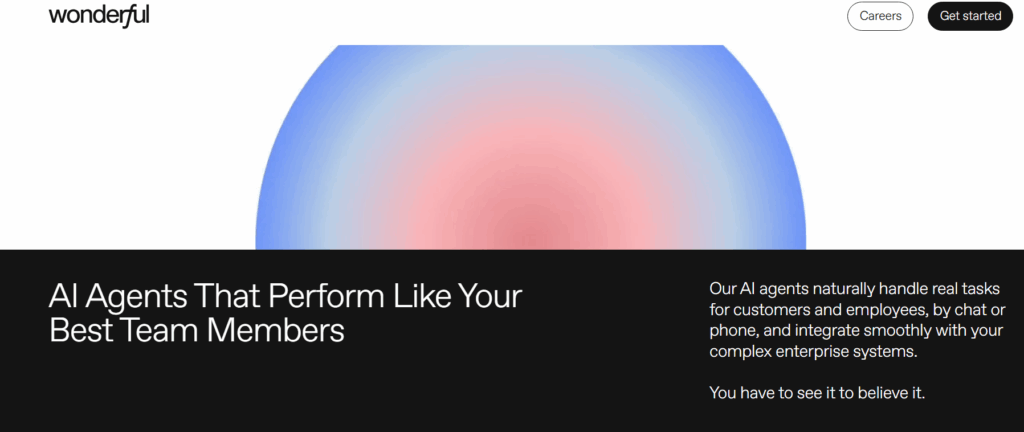
Wonderful, an Israeli artificial intelligence startup, has emerged as a significant player in the global AI landscape with its groundbreaking approach to multilingual customer support automation. Founded in early 2025 by CEO Bar Winkler and CTO Roey Lalazar, the Tel Aviv-based company recently closed an impressive $34 million seed round led by Index Ventures, with participation from Bessemer Venture Partners and Vine Ventures.
The startup addresses a critical gap in the AI market by developing sophisticated AI agents specifically designed for non-English-speaking markets across Europe, Asia, and the Middle East. While most AI customer support solutions focus primarily on English-speaking regions, Wonderful’s platform delivers natural voice support alongside chat and email capabilities, all unified on a single platform that operates seamlessly in multiple languages.
Wonderful’s AI agents tackle the widespread problem of broken contact centers across global markets. The company’s solution promises zero wait time, 24/7 availability, and expert-level support in any language, dramatically cutting costs while outperforming human agents.The company secured major clients including Israeli telecommunications giant Bezeq and healthcare provider Maccabi Health Services within just three and a half months of operation. With a robust engineering team of 50 employees, Wonderful has demonstrated its ability to rapidly develop complex AI products and scale to enterprise sales.
With its substantial funding, Wonderful is positioned to accelerate deployment across untapped international markets, bringing advanced AI customer support to regions that would otherwise wait years for such sophisticated technology.
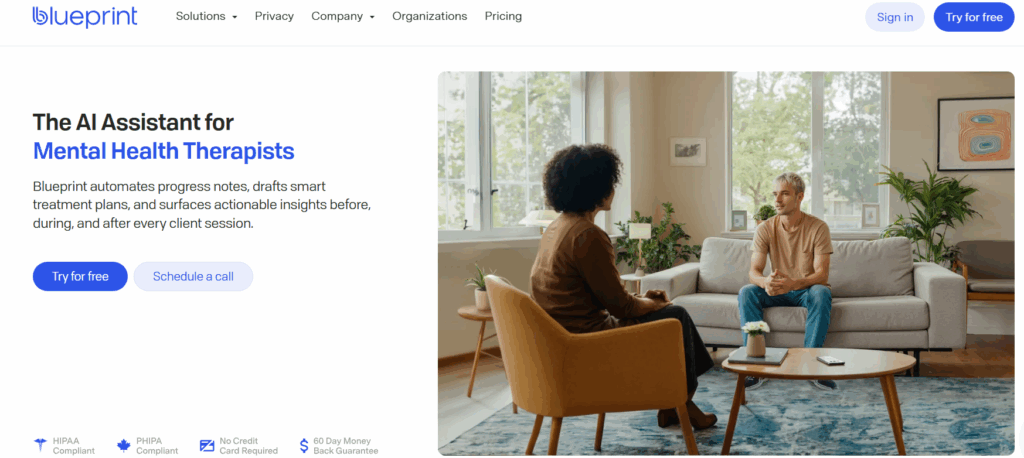
Blueprint AI, a prominent U.S.-based startup in the artificial intelligence space, secured $15 million in venture funding in July 2025 to revolutionize clinical documentation and therapeutic workflows. The company’s AI-driven platform automates the tedious and time-consuming process of progress note creation, enabling therapists to focus entirely on their clients rather than administrative tasks.
Blueprint’s technology transcribes therapy sessions, drafts smart treatment plans, and surfaces actionable clinical insights before, during, and after every client interaction. This automation not only saves therapists significant time but also enhances note accuracy and compliance with insurance and BBSE standards. Users praise Blueprint for its ease of use, seamless integration with electronic health records (EHRs) via a browser extension and API, and the ability to streamline workflows across group practices.
Data privacy and security are top priorities for Blueprint. The platform is HIPAA-compliant and uses AES-256 encryption to protect data during transmission and at rest. Audio recordings are deleted immediately after transcription, and users retain full ownership of their data, with customizable retention policies ensuring control and confidentiality.
Blueprint’s AI assistance empowers therapists to scale their impact while maintaining work-life balance, turning part-time practices into full-time endeavors without burnout. With its innovative approach and strong funding backing, Blueprint is poised to become a critical tool for modern mental health care providers seeking efficiency, compliance, and enhanced client engagement in a highly regulated industry.
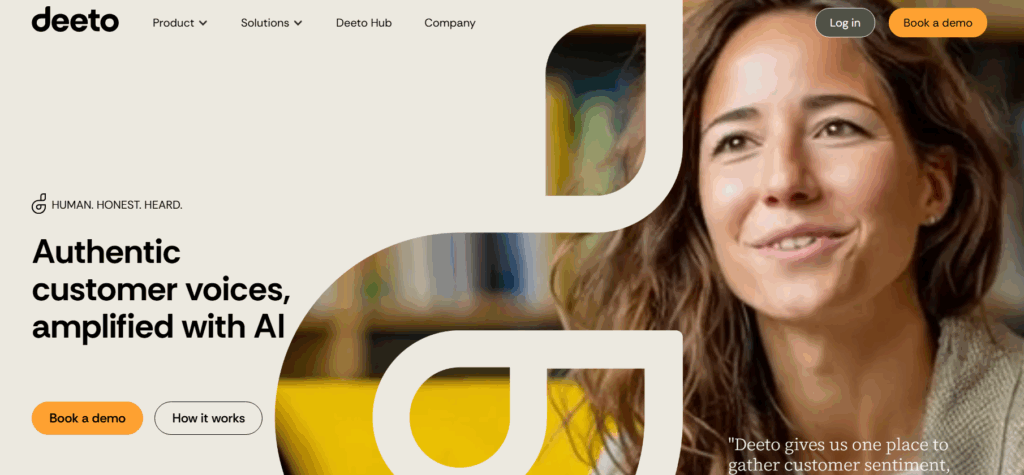
Deeto, a New York-based AI startup, secured $12.5 million in Series A funding in July 2025 to transform B2B buyer journeys through customer-led growth. Led by Jump Capital with participation from UpWest, TAL Ventures, Mertor, and TAU Ventures, this round brings Deeto’s total funding to $17 million.
Deeto’s AI-native platform captures authentic customer voices and transforms them into dynamic, personalized content that influences prospects early in the buying process. By automating the collection, curation, and distribution of testimonials, case studies, and references, Deeto helps sales and marketing teams build trust and accelerate deals before prospects even engage directly with sales.
Trusted by companies like Atlassian, Dropbox, and 6Sense, Deeto drives measurable results including an 85% increase in prospect-reference engagement, a 70% boost in user-generated content, and a 17% improvement in marketing qualified lead (MQL) to sales qualified lead (SQL) conversion rates.
With its robust AI capabilities, Deeto analyzes buyer personas to deliver the right customer stories at the right time, across CRMs, websites, and sales enablement tools. The new funding will be dedicated to scaling the platform, expanding AI features, and growing integrations to amplify customer voices globally across North America and Europe.
By seamlessly turning real customer experiences into powerful sales assets, Deeto is redefining how B2B companies build trust early, shorten sales cycles, and win more business.
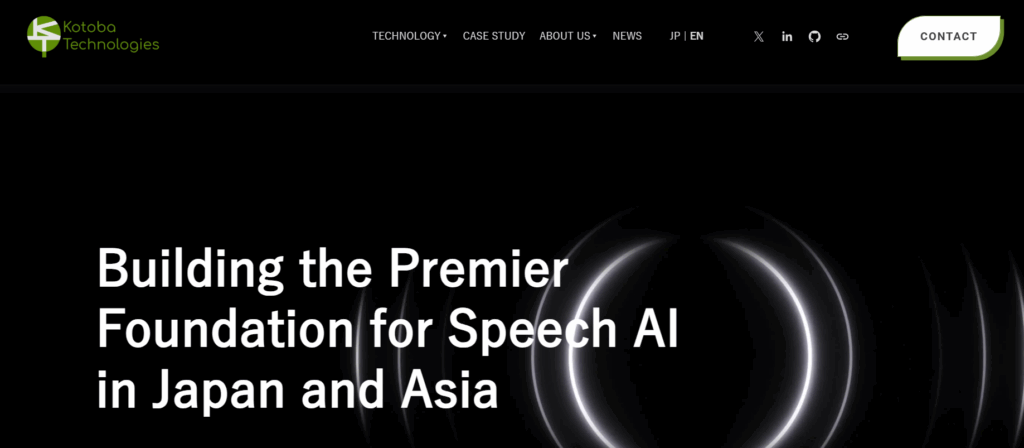
Kotoba Technologies, a Japan- and Seattle-based artificial intelligence startup, raised $11.83 million in a Seed 2 funding round in July 2025 to accelerate the commercialization of its AI-powered real-time speech generation and simultaneous translation technology. The round was led by Globis Capital Partners and Boost Capital, with participation from SIP Capital and prominent global angel investors including Joi Ito and Thomas Wolf.
Founded in 2023 by AI experts Dr. Noriyuki Kojima and Dr. Jungo Kasai, Kotoba develops cutting-edge speech-to-text (ASR), speech-to-speech translation, and voice synthesis (TTS) technologies with a focus on Japanese and other Asian languages. Their flagship product, the DOTSU iOS app, offers speech-to-text simultaneous interpretation with latency below 500 milliseconds and has logged over 500,000 sessions within three months of launch. The company aims to extend to full speech-to-speech real-time translation with near-human quality and low latency, targeting key language pairs such as Japanese-English and Japanese-Korean.
The new funding will support hiring AI engineers, advancing model development, expanding global operations, and accelerating the commercial rollout of their products and APIs. Kotoba strives to break language barriers and make multilingual, seamless communication accessible worldwide with state-of-the-art AI speech technology.
This investment marks a significant endorsement of Kotoba’s vision and technology from both Japanese venture capital and international AI experts, positioning it as a rising leader in the global speech AI sector.

CIMware, an Indian deep-tech startup based in Bengaluru, raised $2.3 million in a Seed funding round led by Transition VC in July 2025. Founded in 2022 by Rajiv Ganth, a seasoned expert in distributed systems and hyperscale infrastructure, CIMware is pioneering next-generation data center architecture with its flagship product, the Composable Infrastructure Module (CIM).
The CIM is a patented smart switching device that integrates compute, storage, and networking at the rack level, enabling modular and highly efficient deployments tailored for AI, machine learning, social media, and video streaming workloads. This memory-centric interconnect technology aims to enhance data center capacity and performance by four to eight times compared to traditional server-centric designs, while significantly reducing energy consumption and carbon footprint.
CIMware plans to start producing 80 to 100 CIM units initially, with scalable manufacturing based on market demand. The company will focus on direct sales in India and the U.S., while actively building partnerships and distributor networks in Europe. Sales initiatives in key countries including the U.K., Japan, and South Korea will commence within six months. CIMware targets a revenue milestone of $175 million by the 2026–27 fiscal year.
The funding will primarily support hardware production, software team expansion, product engineering, and go-to-market strategies. Transition VC highlighted the critical need to modernize data centers due to increasing power, space, and infrastructure constraints exacerbated by growing AI and data-intensive applications.
CIMware’s innovative approach positions it as a promising contender to revolutionize data center infrastructure amid rising global demand for scalable and energy-efficient cloud computing solutions.

SWORN.ai is a U.S.-based startup revolutionizing public safety workforce wellness with its AI-powered biometric intelligence platform. The company recently raised $1.2 million in seed funding in July 2025 to advance its mission of proactively managing the health, wellness, and performance of law enforcement officers and first responders.
Founded by Sean Bair, a former police officer and crime analyst, SWORN.ai leverages commercial wearable devices like Garmin smartwatches to capture real-time physiological data; such as heart rate, heart rate variability, and skin temperature providing deep insights into officers’ stress, mental load, and physical strain during critical incidents. Unlike traditional body cameras that only show events, SWORN.ai’s platform reveals the unseen physiological context, enabling supervisors to intervene early, improve mental health outcomes, and support resilience.
The platform integrates AI to analyze biometric data combined with operational workload and peer feedback, dynamically generating personalized recovery and wellness plans. Early research with SWORN.ai’s technology shows significant benefits such as a 40% reduction in stress-related sick days and a 35% faster recovery time after high-stress events.By delivering actionable, data-driven insights, SWORN.ai empowers law enforcement agencies to shift from reactive to proactive wellness management. Its emphasis on privacy, with no audio or video capture, ensures trust while supporting officer safety and performance.
With this new funding, SWORN.ai aims to scale its technology and expand adoption, ultimately helping first responders maintain peak readiness and well-being in high-pressure environments.
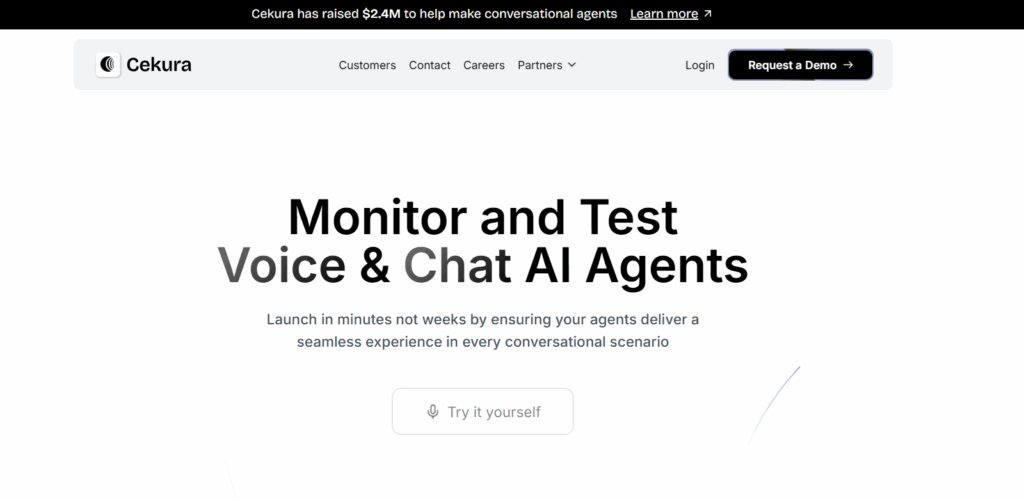
Cekura AI, a San Francisco-based startup founded by IIT Bombay alumni, closed a $2.4 million seed funding round in July 2025 to enhance the reliability and quality assurance of conversational AI voice and chat agents. Led by Y Combinator, with participation from Flex Capital, Hike Ventures, and notable angel investors, Cekura addresses a critical challenge in AI, ensuring consistent and error-free interactions in highly regulated sectors like healthcare and finance.
The startup offers a platform that automates testing, monitoring, and observability for AI agents by simulating thousands of conversations quickly, generating edge-case scenarios to stress-test agents, and monitoring live production calls to detect failures before impacting users. This approach drastically reduces manual quality assurance efforts from weeks to minutes, helping enterprises meet strict reliability and compliance standards.
Cekura’s founders bring diverse expertise spanning NLP research, quantitative finance, and customer experience leadership, positioning them to build robust solutions for complex AI deployments. With over 70 customers worldwide, including startups like Kastle and Sandra, and plans to launch an office in Bangalore, Cekura is well poised to expand its footprint and accelerate product development.
The new capital will be used to grow the engineering team, enhance scenario simulation capabilities, and deepen enterprise integrations. Cekura aims to become the reliability backbone for voice and chat AI agents as the conversational AI market rapidly grows.

Arthos, a United Kingdom-based artificial intelligence startup, raised $736,816 in pre-seed funding in July 2025 to launch Mozart AI, an innovative AI-powered Digital Audio Workstation (DAW) designed to enhance and accelerate the creative process for musicians and artists. The startup focuses on developing AI tools that embed an artist’s unique style, identity, and intention into every AI-generated action, co-creating with the artist rather than replacing them.
Mozart AI allows users to interact through natural language commands via text or voice to generate high-quality music output, including melodies, chords, drums, vocals, and mixing suggestions, all aligned with the artist’s authentic sound. This approach allows musicians to retain full creative control with note-level precision while the AI handles technical workflows and production tasks.
The pre-seed funding round was led by EWOR, New Renaissance Ventures, Atlantis Ventures, Stefan Glaenzer (Founder of last.fm), and serial entrepreneur Felix Jahn. Mozart AI is currently in private beta with a growing waitlist of early adopters and is scheduled for a public launch in mid-July 2025. Arthos’s mission centers on ethical AI development, explicitly committing never to train its models on artists’ data without consent or generate complete songs autonomously.
This investment underlines Arthos’s potential to redefine digital music creation by empowering artists with AI as a cooperative creative partner.
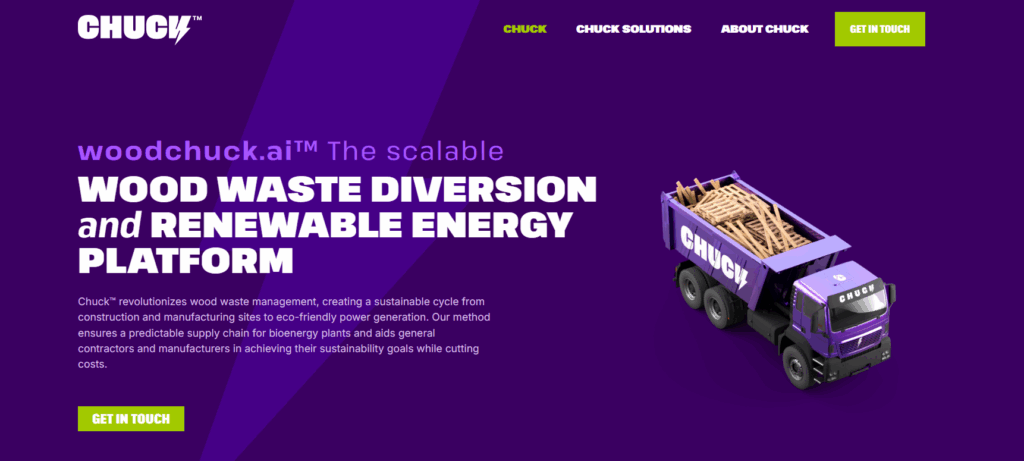
Woodchuck.AI, a Michigan-based startup, raised $3.75 million in seed funding in July 2025 to revolutionize wood waste management and renewable energy production through artificial intelligence. The company’s AI-driven platform identifies, sorts, and processes wood waste from construction and manufacturing sites, diverting millions of tons of material from landfills and converting it into high-quality biomass for clean energy generation.
Founded by CEO Todd Thomas, Woodchuck’s technology leverages advanced image recognition to enhance the efficiency and quality of biomass processing, helping clients reduce waste-hauling costs by up to 30% while providing detailed sustainability reports on materials diverted, CO2 emissions avoided, and energy produced. The company’s biomass is already supplying energy to CMS Energy facilities, supporting a stable energy grid alongside intermittent renewable sources like wind and solar.
The funding round was led by Mason Fink with participation from NorthStar Clean Energy, Alloy Partners, and Beckett Industries. Woodchuck plans to scale operations across construction, manufacturing, and bioenergy sectors, while also aiding disaster recovery efforts by repurposing storm-damaged timber into biomass fuel.
Michigan Governor Gretchen Whitmer praised Woodchuck as a model of innovation intersecting economic growth and environmental responsibility. The platform offers a sustainable solution addressing the growing challenge of construction waste, aligning clean technology with circular economy principles and climate resilience.
Final thoughts
The AI startup landscape in 2025 is marked by a vibrant and dynamic wave of innovation spanning diverse industries and geographies. Companies like Bild AI and Wonderful are harnessing artificial intelligence to revolutionize traditional sectors such as construction and customer support by automating complex processes and breaking language barriers, respectively. Meanwhile, Blueprint, Deeto, and SWORN.ai exemplify AI’s transformative impact on healthcare, B2B sales, and public safety through automation, enhanced engagement, and biometric intelligence.
Funded by significant seed and series rounds, these ventures are poised for rapid growth, emphasizing AI’s accelerating adoption and its potential to reshape industries, empower professionals, and foster global connectivity and sustainability in profound ways.



